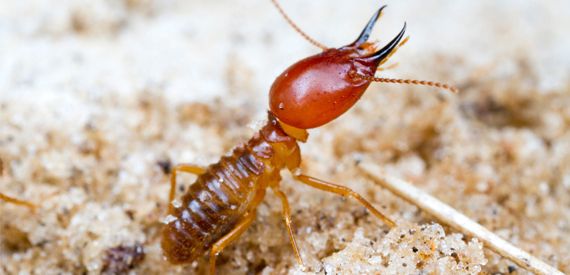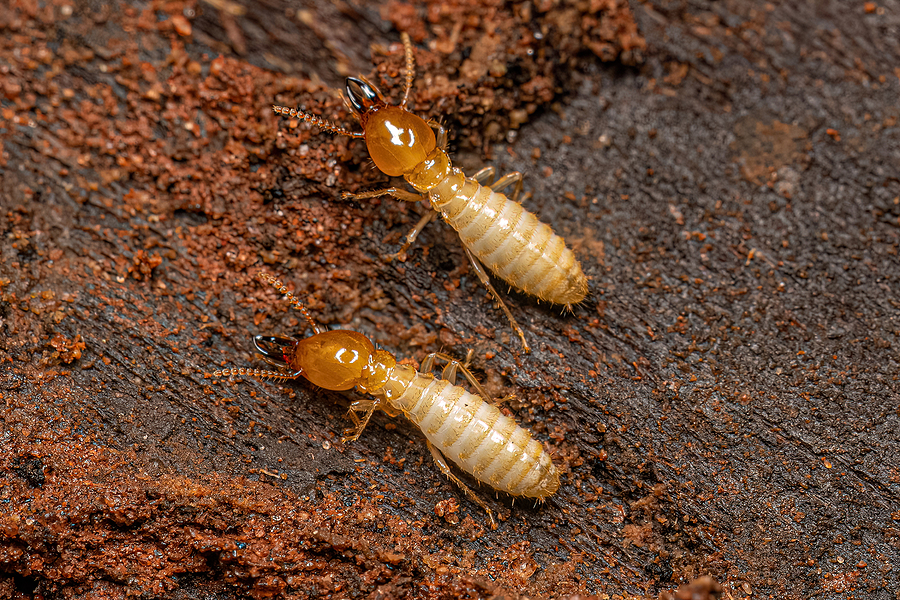Comprehensive Termite Control: Safeguard Your Building with Professional Services
Comprehensive Termite Control: Safeguard Your Building with Professional Services
Blog Article
Ecological Influence of Insect Control: Harmonizing Performance With Sustainability
The ecological impact of bug control is a crucial issue that calls for a fragile equilibrium in between attaining efficiency in making certain and taking care of pests sustainability of our ecosystems. As we make every effort to secure our plants, homes, and health and wellness from the threats positioned by insects, the techniques we employ can unintentionally damage the setting. From making use of harmful chemicals that permeate into our dirt and water to the unexpected consequences on non-target species, the effects of traditional parasite control methods are far-ranging. Nonetheless, there are emerging methods that provide wish for a much more sustainable approach to pest management. These services not only objective to resolve the instant insect issues yet also think about the long-term wellness of our earth.
Dangerous Chemicals in Insect Control
The utilization of dangerous chemicals in pest control presents considerable environmental and wellness dangers that call for careful factor to consider and mitigation strategies. Pesticides, herbicides, and pesticides are frequently utilized to eliminate bugs, but their prevalent application can result in unexpected consequences. These chemicals can contaminate soil, water sources, and the air, influencing not just the targeted insects yet likewise valuable bugs, wild animals, and human beings.

To resolve these dangers, incorporated insect monitoring (IPM) methods are being promoted as a more sustainable choice. IPM entails a combination of techniques such as organic control, environment manipulation, and the targeted use chemicals as a last option (ant control winston salem nc). By adopting a holistic strategy to pest control, we can decrease the ecological and health effects connected with dangerous chemicals while efficiently managing pest populations
Influence on Non-Target Species
Taking into consideration the unplanned consequences of bug control approaches, the effect on non-target types is a vital element that requires detailed examination. While bug control measures intend to target particular pests, various other microorganisms in the environment may be accidentally influenced. Non-target varieties, consisting of advantageous insects, birds, animals, and also plants, can suffer straight or indirect damage from chemical applications or organic control methods.
Pesticides can have dangerous or sub-lethal impacts on non-target types. Insecticides made to combat a specific insect pest may harm pollinators like or all-natural killers such as ladybugs. In addition, chemical deposits can collect in the setting, affecting non-target microorganisms in time. In a similar way, organic control representatives, if not species-specific, can posture dangers to unintended targets, interrupting the ecological equilibrium.
To alleviate the influence on non-target types, incorporated parasite administration (IPM) methods that emphasize an all natural method to pest control are advised. These approaches focus on using eco friendly techniques, reducing injury to beneficial microorganisms while successfully handling pest populaces. Performing complete risk assessments and keeping an eye on the results of insect control initiatives are crucial actions in safeguarding non-target species and promoting general environment wellness.
Soil and Water Contamination
Unplanned ecological repercussions of insect control approaches extend beyond affecting non-target types, with substantial implications for dirt and water contamination - ant control. Pesticides, herbicides, and chemical fertilizers made use of in insect control can leach right into the dirt and contaminate groundwater, positioning a danger to both terrestrial and water ecosystems.
Water contamination is an additional important problem connected with bug control techniques. To alleviate dirt and water contamination from insect control tasks, incorporated insect administration techniques that prioritize sustainability and reduce chemical inputs are vital.
Air Air Pollution From Pesticide Use
Exposure to airborne chemicals during agricultural applications positions a significant issue for air pollution control actions. Furthermore, chemical drift, where chemicals are lugged by the wind to unexpected areas, can lead to the contamination of nearby environments and water bodies.

Approaches for Sustainable Pest Control
In the realm of farming methods, carrying out sustainable parasite control go to the website techniques is critical for maintaining eco-friendly balance and safeguarding crop yields. Sustainable parasite control stresses using eco-friendly techniques to take care of insect populations properly while decreasing injury to non-target microorganisms and communities. Integrated Parasite Management (IPM) is an extensively adopted method that combines organic, cultural, physical, and chemical control methods to accomplish long-term insect monitoring solutions.
One trick strategy in lasting bug control is advertising biodiversity within agroecosystems. By improving all-natural enemies of insects, such as parasitoids and killers, farmers can decrease the requirement for synthetic pesticides. Crop rotation and diversification are likewise effective strategies to interfere with pest life cycles and develop less desirable conditions for bugs to thrive. Furthermore, making use of pest-resistant crop varieties and utilizing techniques like catch chopping can assist lower parasite stress without relying heavily on chemical interventions. Ultimately, by incorporating these lasting bug control techniques, farmers can accomplish an equilibrium between pest management performance and ecological stewardship.
Final Thought
Finally, the environmental influence of pest control techniques need to be meticulously taken into consideration to stabilize effectiveness with sustainability. Hazardous chemicals utilized in insect control can bring about soil and water contamination, air contamination, and damage non-target species - ant control. It is important to carry out lasting insect control approaches to reduce these negative effects on the setting and advertise a healthier ecosystem for future generations
By taking on an alternative approach to pest control, we can lessen the ecological and wellness effects associated with dangerous chemicals while successfully taking care of pest populations.

To minimize the air contamination triggered by chemical use, it is crucial to embrace incorporated bug management strategies that focus on the usage of non-chemical parasite control methods, such as plant turning, natural killers, and resistant crop selections. Sustainable pest control highlights the use of ecologically friendly techniques to take care of insect populaces efficiently while reducing damage to non-target microorganisms and ecological communities. Integrated Pest Monitoring (IPM) is an extensively embraced technique that combines biological, social, physical, and chemical control approaches to achieve lasting insect administration services.
Report this page